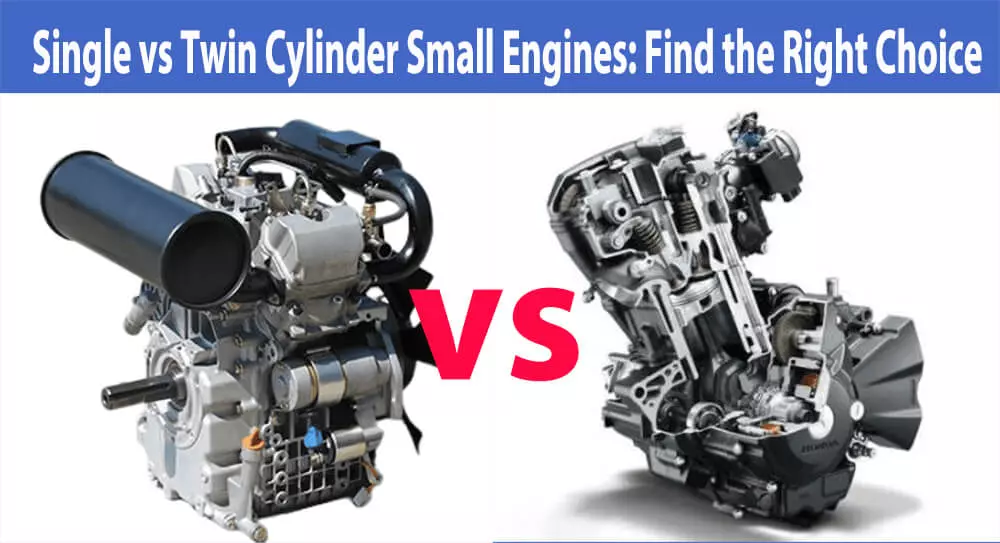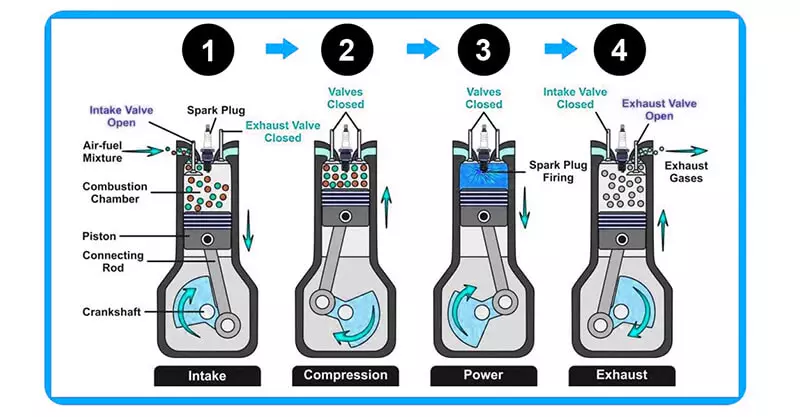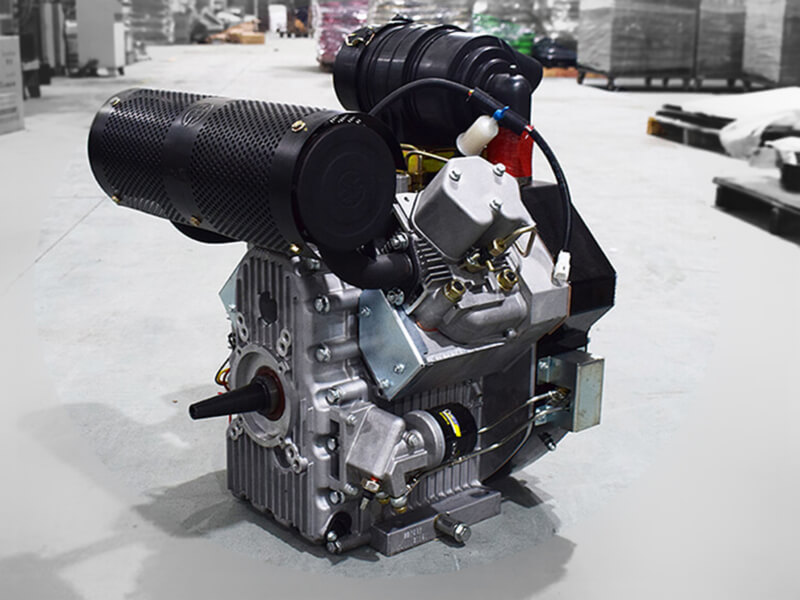24Oct 2024
table of contents

In small engine field, you will find there are two types: single cylinder small engines and twin cylinder small engines. These compact power sources are common in high pressure washers, generators, concrete saws and small farm machinery. Although both provide dependable energy, they differ greatly in design, performance and maintenance ease.
When choosing small engine, understanding the differences between single and twin cylinder small engines is crucial. This article offers detailed comparison of two small engines to help you in making an informed decision. Continue reading to discover their work mechanics, performance features, and find the ideal small engine for your requirements.
Single cylinder small engine represents the simplest form of internal combustion engines. Key elements such as crankshaft, connecting rod, valves and combustion chamber comprise its core components. It functions on a four stroke cycle, which includes the stages of intake, compression, power and exhaust. During intake phase, piston moves downwards to draw in an air-fuel mix. Subsequently, in the compression stroke, piston ascends to compress this mixture. After engine ignites, piston moves down during the power stroke. During the exhaust stroke, piston rises to expel exhaust gases.

Simple and easy to maintain : Simple structure, few parts and easy maintenance.
Lightweight and compact : Simple and lightweight design, suitable for applications where space is limited.
Fuel efficiency : Small displacement, simple structure, low fuel consumption.
Low cost : Fewer parts, lower manufacturing costs, and more affordable prices.
Big vibration : There is only one piston and the balance is poor. The vibration is obvious especially when running at high speed.
Limited power : Can only provide limited power, not suitable for high load tasks.
Torque fluctuation : The power transmission is discontinuous and the torque fluctuation is large during operation.
Twin cylinder small engines are provided in inline and V configurations. The inline version features cylinders in a straight line, while the V type positions them in a V shape. Each design allows the twin pistons to collaborate, delivering increased power and smoother performance.
Enhanced power and torque : Dual cylinders combine to deliver increased power and torque for tough tasks.
Smooth operation : Multiple cylinders achieve better balance, reduce vibration and run more smoothly.
Suitable for heavy duty: Ideal for handling demanding equipment like big lawn mowers, motorcycles and farm machinery.
High initial cost : Increased complexity, higher manufacturing costs.
High maintenance cost : Complex structure, many parts, high maintenance cost.
Large size and weight : The twin cylinder design is more bulky and not suitable for all applications.

Single cylinder small engines are ideal for light duty tasks like lawn mowers, small generators and handheld garden tools.
Twin cylinder small engines are better for heavy duty use, including large generators, ride-on mowers and motorcycles.
Single cylinder small engines typically provide between a few HP and 15 HP, suitable for low intensity tasks.
The twin cylinder small engine provides horsepower from 15 HP to more than 30 HP, suitable for high intensity, continuous load tasks.
Single cylinder small engine's simple build and affordable cost make it ideal for budget-conscious users.
Two cylinder engines have complex structures, high initial costs, and high maintenance costs in the long run.
The single cylinder small engine has small displacement, simple structure and high fuel efficiency.
Two cylinder small engines have high power, large displacement, and low fuel efficiency.
Single cylinder small engines offer greater fuel efficiency and produce fewer emissions, making them ideal for uses that demand stringent environmental standards.
In contrast, twin cylinder small engines operate more quietly, have less vibration, and are better adapted to settings where reducing noise is vital.
In summary, both single cylinder and twin cylinder small engines offer unique benefits and drawbacks. Selecting the appropriate one should depend on criteria like specific usage requirements, budget considerations and fuel consumption. At BISON, we can provide high quality single cylinder and twin cylinder small engines, and customized for your needs. Browse our selection to locate the perfect small engine for your requirements.
inquiry form here
BISON BLOG, All the latest news and views from Bison Machinery.